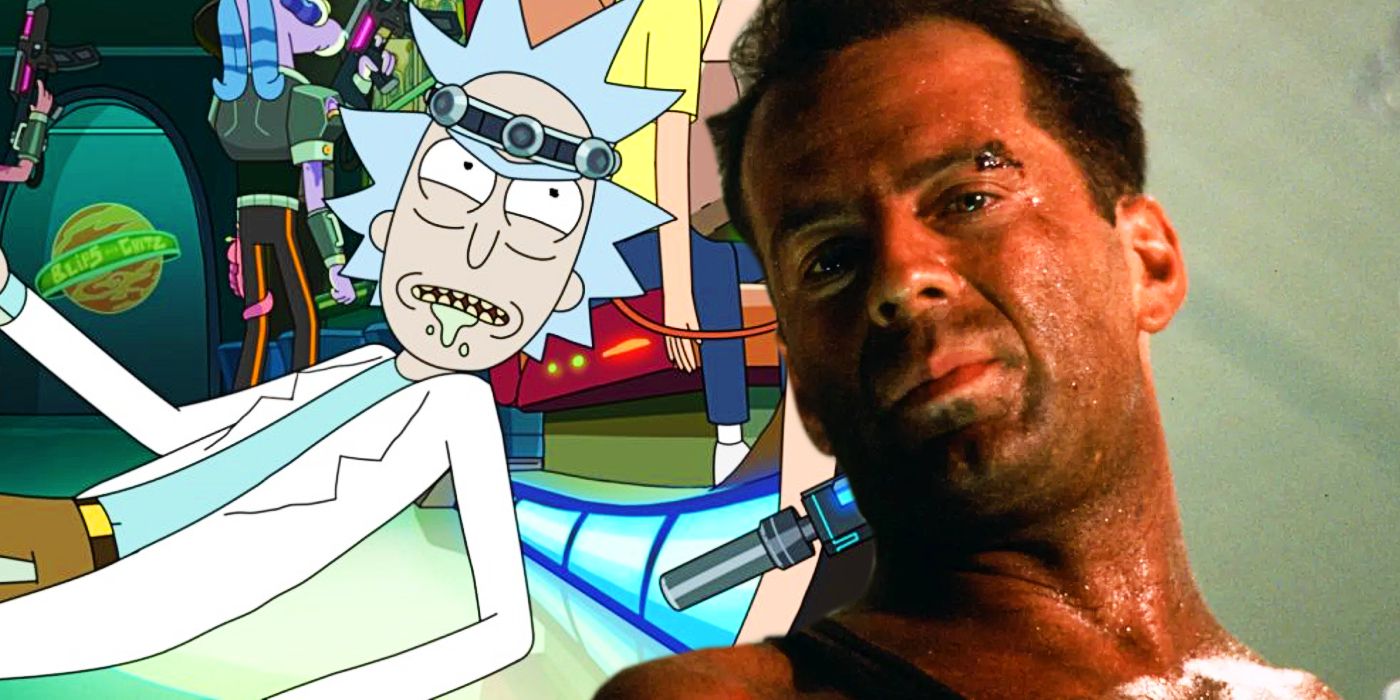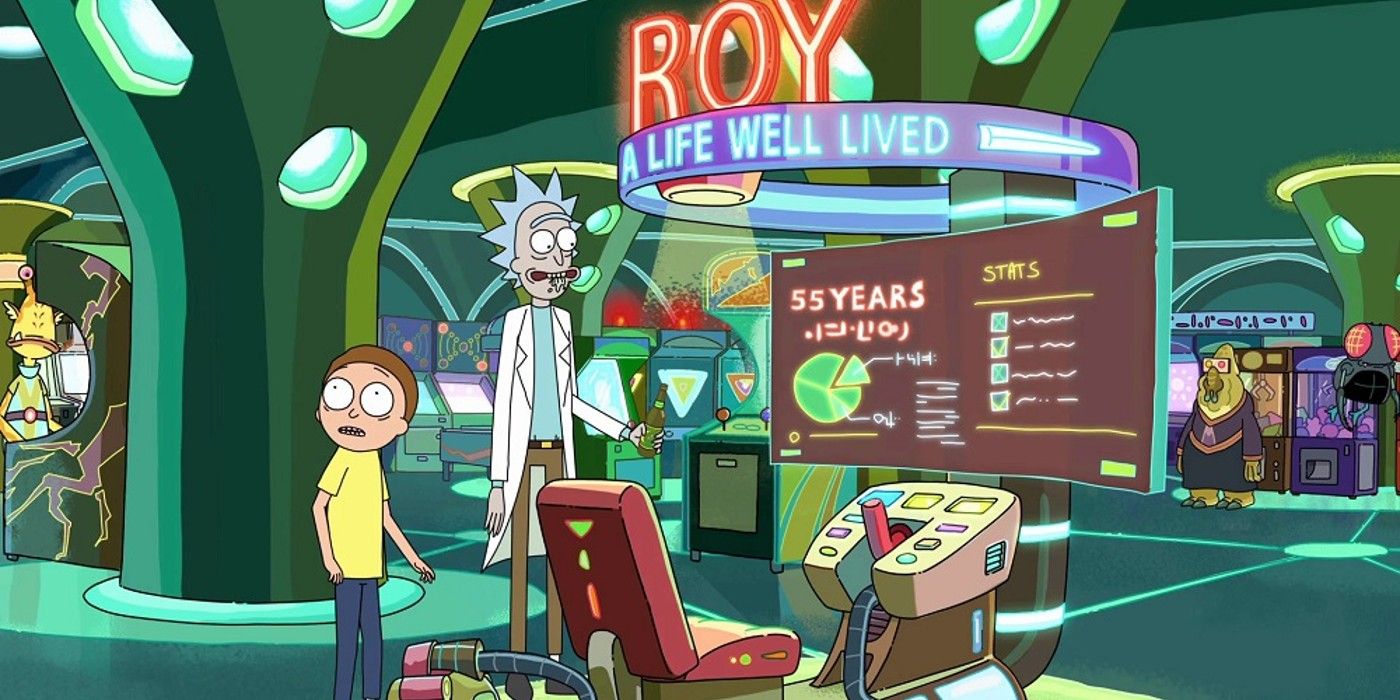There are always clever in-jokes in Rick & Morty, but one throwaway line from the show’s Die Hard parody was a particularly ingenious nod to the show’s own origins. Rick & Morty season 6 might be more mature in its ideas of heroism than earlier outings of the series, but the anarchic animated cartoon is still just as focused on light-hearted spoof humor as ever. The second episode of season 6, “A Mort Well Lived,” proved as much with a goofy Die Hard parody.
However, since this is Rick & Morty, the show’s spoof also involved a surprisingly smart nod to Rick & Morty's origins within this parody. While most of the episode’s plot revolved around Rick’s attempts to break Morty free from a video game reality, the B-story followed Summer’s attempts to “do a Die Hard” in an arcade invaded by alien terrorists. During this parody, the episode obliquely referenced Rick & Morty’s earliest iteration, The Adventures of Doc & Mharti.
After Summer asked the terrorist leader if he was also trying to do a Die Hard, Peter Dinklage’s Hans Gruber parody waxed lyrical in response, talking at length about how “every sentient civilization across the galaxy eventually develops the same myth.” The gag is a subtle nod to Joseph Campbell’s famous “mono-myth” theory, a storytelling theory that can not only be seen in the plot line of Die Hard but also helped develop the formula of Rick & Morty. Campbell’s “Hero’s Journey” theory outlined the standard beats that most myths, folk tales, and narrative stories have to hit and, in the process, provided a blueprint for Rick & Morty’s co-creator Dan Harmon’s famous “story circle.”
Joseph Campbell’s Mono-Myth Explained
While it has been subject to criticism in recent years for its limited understanding of indigenous storytelling, Joseph Campbell’s mono-myth theory is incredibly influential when it comes to conventional television and film storytelling practices. Every Die Hard movie follows the 12-stage “Hero’s Journey” to a tee, as does every episode of Rick & Morty. This is no surprise since Campbell’s outline provides the basis for a conventionally satisfying narrative, but what is clever about Rick & Morty’s reference to the mono-myth is its connection to Rick & Morty’s real-life development history.
Campbell’s model of the Hero’s Journey is so influential that it formed the basis of Rick & Morty co-creator Dan Harmon’s “story circle,” which his online short film festival Channel 101 used as the basis of its storytelling challenge. Every month, future stars like The Lonely Island would submit short five-minute movies to this festival and share their work with an audience. It was at Channel 101 that Rick & Morty’s other co-creator, Justin Roiland, got his start making obscene shorts like “The Adventures of Doc & Mharti” — which eventually went on to become Rick & Morty. Thus, the Rick & Morty season 6 gag about every civilization having its own version of Die Hard is not only a nod to Campbell’s Hero’s Journey, but also a clever reference to the origins of the series itself.


